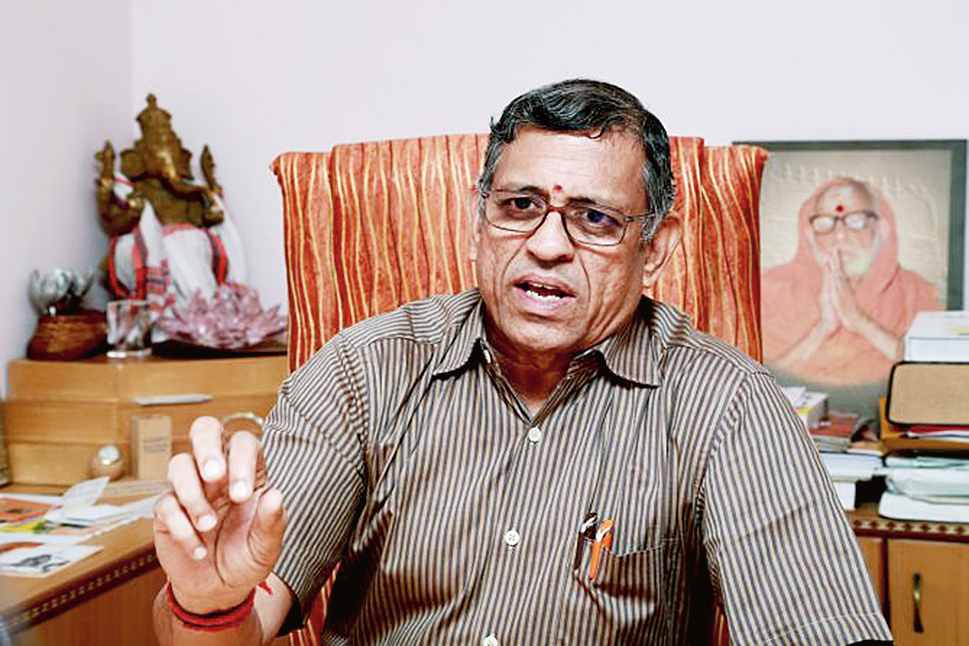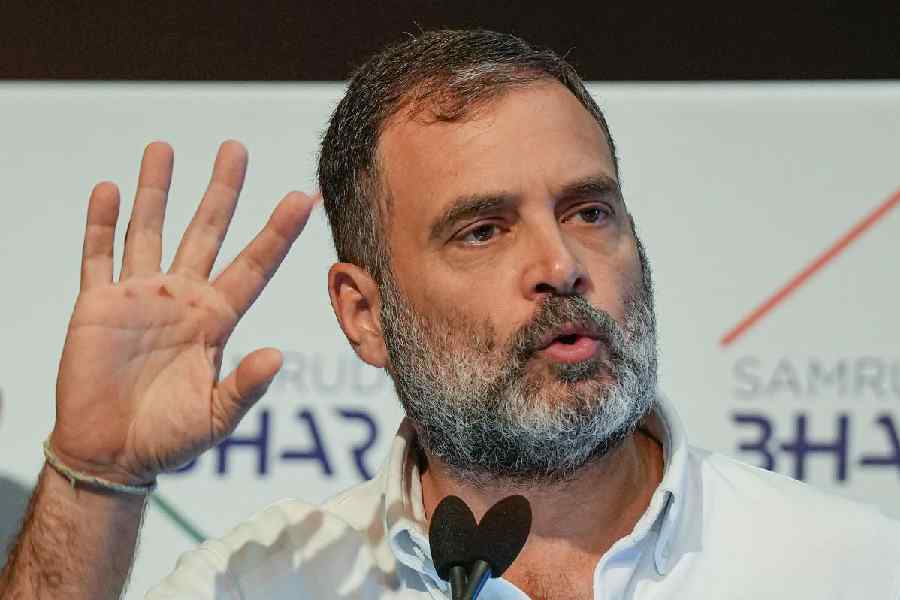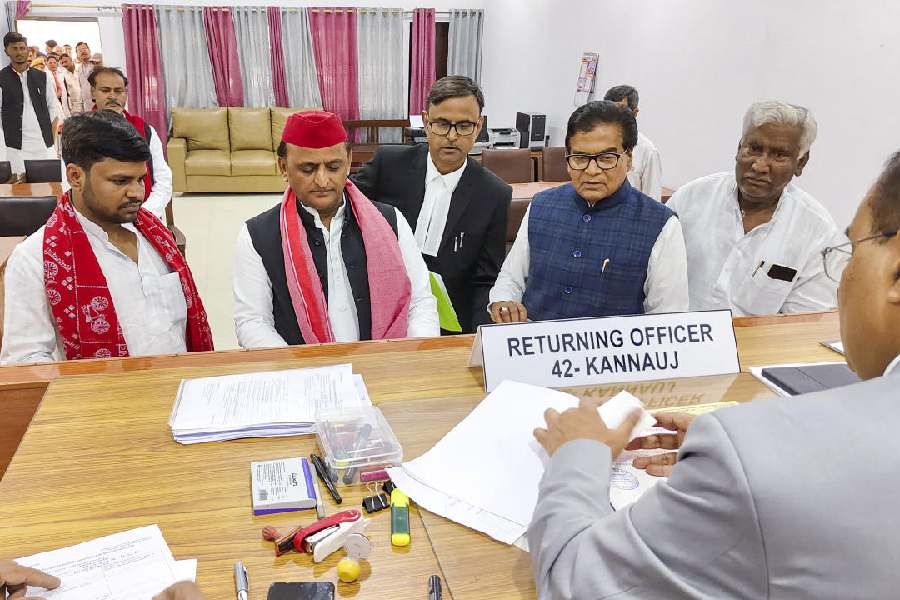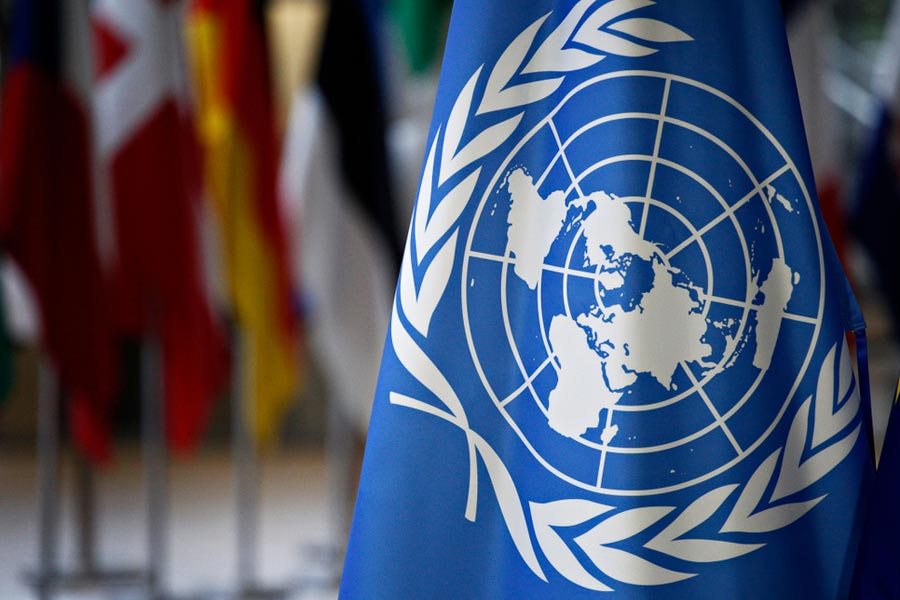S. Gurumurthy, RSS ideologue and feisty member of the central board of directors of the Reserve Bank of India, has argued that the liquidity crunch that has beset India’s financial system is a result of the fetters that were placed on the Centre in 2003 that prevent it from printing money at will.
The well-known Chennai-based chartered accountant, and a hardline advocate of changes in the central bank’s mandate that many believe will impinge on the RBI’s independence, has peddled his solution to the gridlock over funnelling loans to small and medium businesses because of lending restrictions that the RBI has imposed on banks.
He has also made a case for calibration of the RBI’s Rs 9.6 lakh crore reserves, saying no central bank in the world maintains such high levels of surplus.
Gurumurthy said the RBI currently has a reserve of 27-28 per cent, which may have gone up due to the recent depreciation in the value of the rupee.
“Some policy will have to be worked out. You cannot say, come on it has appreciated so much, give me that money. I don’t think the government is asking for that... the government is only asking for a formulation of a policy as to how much reserve the central bank must have. Most central banks don’t have reserves of this kind at all, only RBI has these kinds of reserves,” he said.
The current total capital of the RBI is about Rs 10.53 lakh crore. Of this, the revaluation reserves on account of the foreign exchange and bullion the RBI holds amount to Rs 7 lakh crore.
Currency count
Gurumurthy, an ardent supporter of the controversial demonetisation experiment in November 2016, said the current liquidity crisis could have been handled better “if the government had the power to print currency”.
India adopted the Fiscal Responsibility and Budget Management (FRBM) Act in 2003 that capped borrowings by the Centre and states by linking it to tough fiscal deficit criteria. “In effect, it robbed the government of the right to print money,” Gurumurthy said while trashing the prudential, rule-based legislation that was designed to force the Centre and state governments to be less profligate in accessing market borrowings to fund their spending programmes.
The Modi government has already said it intends to bring down the fiscal deficit to 3.3 per cent of GDP and cut its gross borrowings by Rs 70,000 crore this year –— which limits its ability to increase spending on welfare programmes at a time it has already exhausted 95 per cent of the budgeted fiscal deficit of Rs 6.24 lakh crore for 2018-19.
“The Bank of Japan has been printing $70 billion of money every month,” Gurumurthy said at an event here on Thursday.
The comments by the RSS ideologue — who also supports the idea of massive restrictions on imports to put a lid on the country’s current account deficit which widened to $15.8 billion, or 2.4 per cent of GDP, in the second quarter ended September 30 — come just four days before a meeting of the central board of directors of the RBI to resolve a rift between the government and the central bank over the size of the central bank’s contingency capital buffers and the government’s right to dip into them.
Ahead of the meeting of the RBI on Monday, the government has offered to drop its immediate demand for a drawdown of cash from RBI’s capital buffer if the central bank agrees to relax lending curbs on the banks which, the government believes, is stifling economic growth.
Many economists believe an unfettered right to print money will trigger an inflationary spiral, rekindling memories of the 1960s and 1970s when the RBI was printing money to finance the government’s huge budget deficit.
“Indiscriminate printing of money is inflationary and will hurt the poor the most,” said Biswajit Dhar of the Jawaharlal Nehru University. “Inflation will make life tougher, the poor poorer, and the rich richer. The political fallout of such a policy is usually negative.”
“The government gave up that power (to print money) in the FRBM Act … there is a liquidity problem … these are issues which need to be discussed. (But) Our economic theoreticians say all this is wrong,” said the co-convenor of the Swadeshi Jagran Manch, an affiliate of the RSS that focuses on economic issues.










